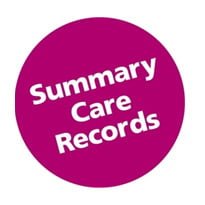NHS Ashton, Leigh and Wigan is launching a pilot project offering community pharmacists access to the Summary Care Record.
The primary care trust told EHI Primary Care that the pilot will initially involve eight pharmacy sites from two independent pharmacies and two pharmacy chains. It will run for three to five months from this month.
The launch of the pilot follows the suspension of a pilot scheme to test pharmacy access to the SCR in Bradford, after the Department of Health said it wanted to focus on use of the SCR in urgent and emergency care.
Peter Jenkinson, chief information officer at NHS Ashton Leigh and Wigan said the pilot in the PCT was looking at how pharmacy access to the SCR could support more responsive care for patients in an emergency or requiring urgent care.
He told EHI Primary Care: “Our main priority in starting this work is to improve patient safety.”
Jenkinson said preparation work for the pilot had included staff training and updated guidance to ensure patient confidentiality is respected and patient consent is properly obtained before an SCR is viewed.
The PCT said it would consider plans to widen access to the SCR following a review of the pilot by the trust and the local pharmaceutical committee.
Jenkinson added: “We have already had an additional ten sites which have expressed a desire to be involved in the project and we are currently involved in early preparation activities with them.”
The review is to examine improvements in patient safety, how the consent model works in practice, the benefits gained by pharmacists and the impact of any technical issues.
Jenkinson said the PCT hoped to be able to provide access to all community pharmacists who wanted to be involved in the project in NHS Ashton, Leigh and Wigan by the end of 2011.
A spokesperson for the DH said its priority was to continue to build trust and confidence in the SCR as it was introduced more widely.
She added: “Innovation by the local NHS to explore potential benefits for their patients in the use of the SCR to support urgent and emergency care is encouraging; any piloting will need to fully consider the scenarios when the SCR should be viewed and how patient consent and confidentiality will be managed."
Lindsay McClure, head of information services at the Pharmaceutical Services Negotiating Committee, said the PSNC supported endeavours that explored and highlighted the value of enabling community pharmacies to access the SCR.
She added: “There are a number of scenarios, not least in response to emergency supply requests, where knowing more about a patient’s regimen has the potential to improve that patient’s safety and care.
"As well as exploring the benefits of access, there is also a need for pharmacy SCR early adopter sites to investigate practical issues that arise from access, for example how the SCR consent model is best implemented in the community pharmacy setting.”

